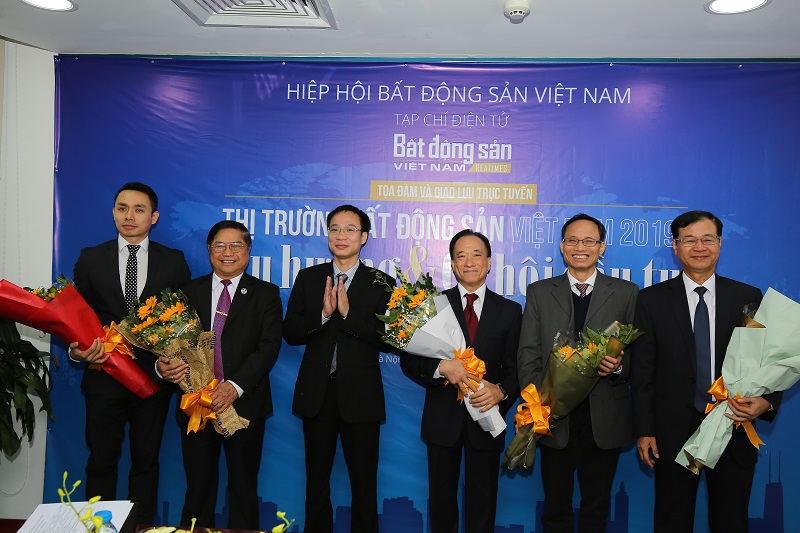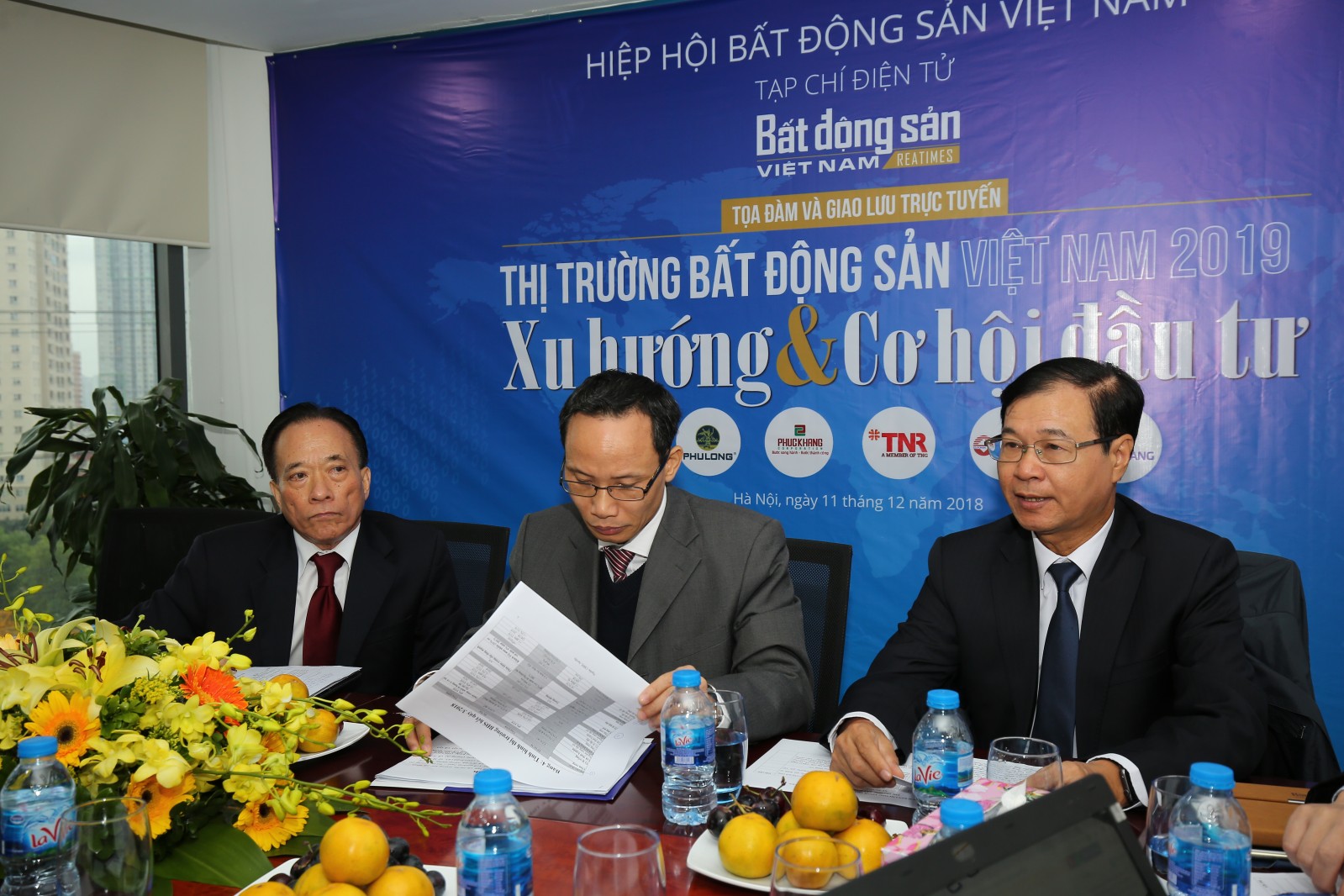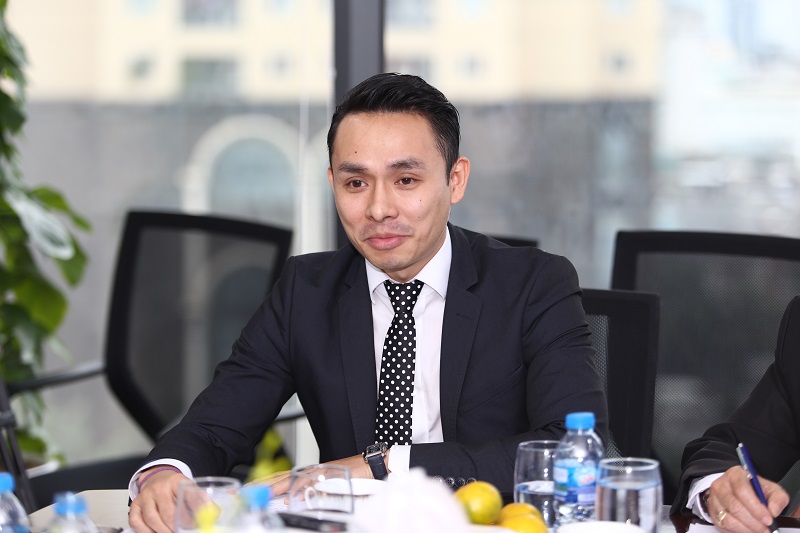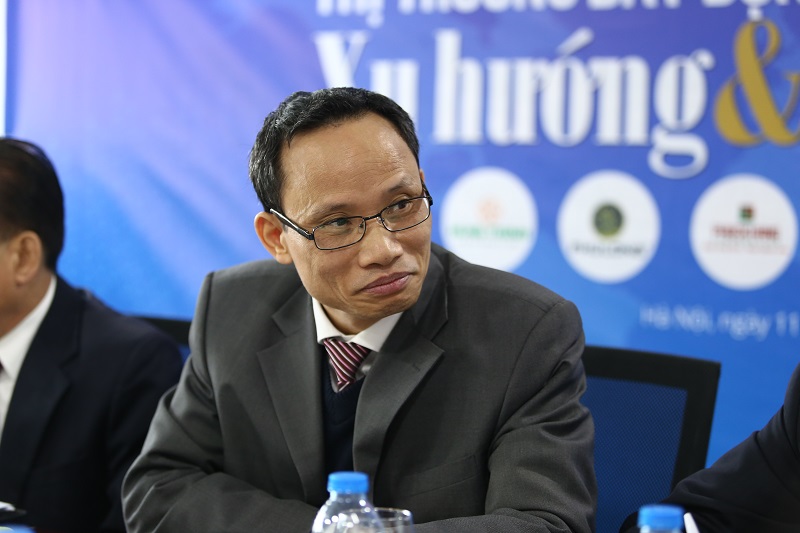
Commencing the talkshow, Editor in Chief Pham Nguyen Toan stated: The public has expressed many concerns for 2019, including the possibility of a real estate bubble, the changes of land legislation and its impacts on the market, forecasted trends for each segment in 2019, and more.

For these problems, and under the agreement of Vietnam Real Estate Association, Reatimes has decided to host the Talkshow and Online Discussion on “Vietnam Real Estate Market 2019: Trends and Investment Opportunity”.
Mr. Nguyen Manh Ha, Vice President of Vietnam Real Estate Association:

According to the statistics of Vietnam Real Estate Association, the real estate market was stable in the first few months of 2018. Supply is higher than comparable months of 2017. One special thing is that, instead of focusing on two big cities Hanoi and Ho Chi Minh City, the market of the surrounding area has also prospered, for example, Dong Nai, Binh Duong, Bac Ninh, Bac Giang, Phu Tho, etc.
Moving on to 2019, the market will grow with generous supply, focusing on large projects, small cities with full service and completed infrastructure like Vingroup’s project, and this will be the market leading trend.
In 2019, the industrial real estate segment will be particularly developed. Thus, the development of industrial zones must be better synchronized to attract foreign investors and attention must be paid to commercial housing to meet accommodating needs. We strongly think that this segment still has a lot of room to grow.
PhD. Can Van Luc, Chief Economist of BIDV Bank:
The market will focus on office for rent, houses, and tourism real estate.
2018 was basically a good year for rental office. HCMC’s occupancy rate is up to 96-97% while vacancy rate is 2 to 3%. CBRE’s data shows that Ho Chi Minh City is lack of office space supply. Thus, the average office rent in HCMC increases by 12-17%. Meanwhile, stable supply has kept price increase at just 1 to 4%.
Residential is the second segment. Occupancy rate in Ho Chi Minh City is 77%, compared to last year’s 88%. The main reason is that HCMC has started to over-supply the mid-end segment while affordable housing remains stable. In terms of buyers, Chinese customers purchase the most, accounted for 31% of total CBRE recorded buyers.
For tourism real estate, supply is relatively large in the past three years. In the next two years, supply in Da Nang and Nha Trang remains high, at roughly 34,000 units, while in Ha Long and Phu Quoc is about 14,000 to 15,000 units. In terms of founding capital, what used to be only 20 billion VND is now amounting to 60-70 billion VND, proving that private capital flows into real estate have increased significantly. In the first 11 months of 2018, FDI were about 6.5 billion USD, doubled from to the same period last year. Real estate registration accounts for about 33% of new registered capital, ranked second of all sector. In addition, many enterprises have actively issued bonds to lessen their dependency on the credit system in times of capital shortage. And this is a good sign.
Professor Dang Hung Vo, former Vice Minister of Natural Resources and Environment:

2019 will be much better when there is plenty of rooms for tourism property development and no room for real estate bubble or over-supply. Also, it is unnecessary to ban condotel.
Residential housing is moving positively but it requires adjustment in policy and developing direction. Vingroup’s project is a good example for housing policy where they do not offer affordable houses but instead, loosen pay period to alleviate burden of prospective buyers.
The policies on the sale of houses to foreigners also need to be changed. Former Singapore Prime Minister Lee Kwan Yew once said: Vietnam is the most wasteful of opportunity. Industrial and commercial real estates are new driving factors. The US-China trade war is a great opportunity for Vietnam to draw attention of foreign investors by preparing a favourable investing climate. The potential of industrial and commercial real estates is outstanding.
Mr. Nguyen Anh Tuan, Vice President of HD Mon Holdings:

Real estate is not an easy business. Few years back, many people wanted to jump into this market, but for the last five years, investors without bravery, sufficient capital resources, and risk-taking, will not be able to success in the property business.
First of all, in terms of market overview, the current demand is high, especially in big cities with many people immigrating to every year. Not to mention, Vietnamese people like to own things. Therefore, housing demand remains high, and will even increase, particularly the affordable market. Vingroup is on the right track with the newly released project.
In the condotel market, Van Don has many advantages like highways, an airport, a seaport, and especially beautiful landscape, while Ha Long is too crowded. I think Van Don is a sleeping beauty and it will be the most potential market in the near future.
Nowadays, fraudulent businesses will not survive. Firms will have to do real business to make real living to last in the market. That is natural selection of the market. When developing a project, we have to see the long-term benefit of building the brand, including project construction, management, and customer service. Without customer service, owner’s reputation will be heavily damaged, especially in this information explosive age.



















